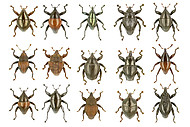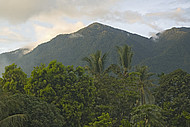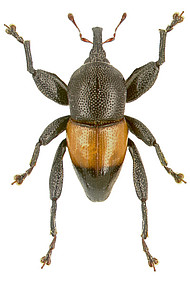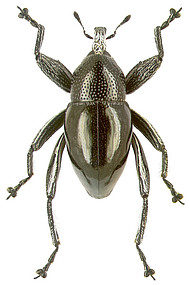Papuan phonebook helps scientists describe 101 new beetle species
Tropical rainforests are known for their high biodiversity of countless species, many of them unknown and not named by scientists yet. A high proportion of this undiscovered life on earth is formed by insects, especially beetles.
Entomologist Alexander Riedel knows this well, being experts for faunas of remote tropical countries such as the wilderness of New Guinea. Now he came across a special case, the weevil-genus Trigonopterus which is truly “hyperdiverse”. Hundreds of distinct species roam the jungles of this tropical island and most of them have never been recorded by scientists. To describe this huge diversity using traditional approaches would take more than a lifetime, but there is no time to waste! Forests disappear for the sake of ever expanding palm oil plantations and arguments are needed in the battle for the conservation of each hectare of primary forest. This called for a new approach: A portion of each weevil species’ DNA was sequenced which helped to sort out and diagnose species efficiently. Besides, high-resolution photographs of each weevil were taken and uploaded to a Wiki site, along with a short scientific description. More than 100 species were brought to the light of science and public attention this way right now – about five times faster than possible with traditional techniques! Another problem was tackled with an equally innovative idea: To find suitable names, Papua New Guinea´s phonebook was used as a helpful resource. Many species were named for Papuan families found in the yellow pages. Some of them may not even guess of their honor - a weevil species with their own name in the backyard! The new species and the general idea of how to get biodiversity better known before it becomes extinct is described in the journals ZooKeys and Frontiers in Zoology, both of them open access. As such it is open to anyone with internet access for free – in fact, the Papuan people who donated their names may learn about it that way.









